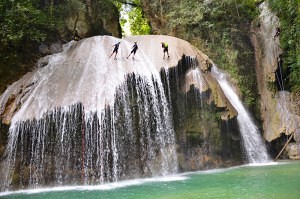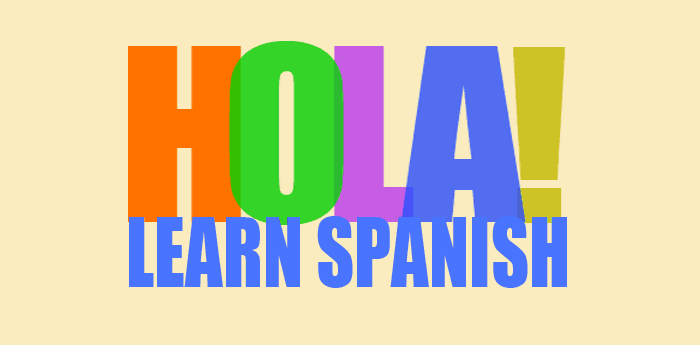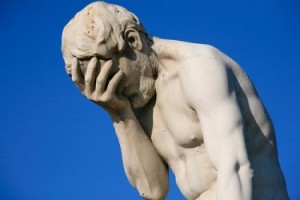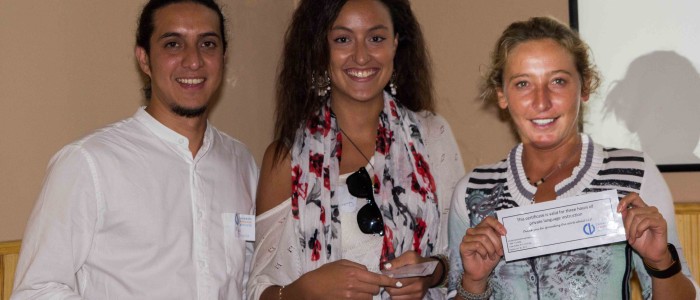Dominican beaches are only the beginning…
Chances are, you’ve already grabbed the sunscreen. So here’s a little knowledge to pack alongside. Guns! Money! Intrigue! Baseball! There’s always been a lot more to the Dominican Republic than you may think. Use this short reading list, compiled by Cabarete Language Institute, to paint you a fuller picture of the balmy island state.
1. The Brief Wondrous Life of Oscar Wao by Junot Diaz
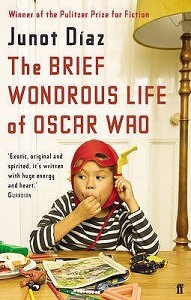 Winner of the Pulitzer Prize and the National Book Critics Circle, the story of Oscar Wao – a sweet and friendly Dominican-American nerd, is mostly loved by all. But let’s keep it real; this book is out there. With references ranging from the Dominican concept of Fuku (a curse) to Dr. Who, there are few people on this planet who will get every inside joke, pun and literary trick in this book. (I suppose these are the books that win the fiction awards, right?)
Winner of the Pulitzer Prize and the National Book Critics Circle, the story of Oscar Wao – a sweet and friendly Dominican-American nerd, is mostly loved by all. But let’s keep it real; this book is out there. With references ranging from the Dominican concept of Fuku (a curse) to Dr. Who, there are few people on this planet who will get every inside joke, pun and literary trick in this book. (I suppose these are the books that win the fiction awards, right?)
Even if you only get half of what this story is about and the various references, it is worth the read. Not only do you get to step into the world of a dorky Dominican growing up in New Jersey in the 1980’s, but the book also travels back in time telling the story of Oscar’s mom and grandfather in the Trujillo era – a defining time in contemporary Dominican history.
2. Feast of the Goat by Mario Vargas Llosa
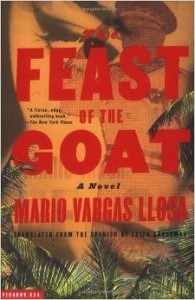 If you are looking for a colorful yet dark read about Rafael Trujillo – the brutal yet iconic dictator that ruled the Dominican Republic from 1930 until his assassination in May 1961, read Vargas’s account of El Jefe’s life and murder.
If you are looking for a colorful yet dark read about Rafael Trujillo – the brutal yet iconic dictator that ruled the Dominican Republic from 1930 until his assassination in May 1961, read Vargas’s account of El Jefe’s life and murder.
This is fictionalized history at its best with three stories woven throughout the novel, including the gripping account of how the assassination of Trujillo by former loyalist was planned and eventually carried out.
The interwoven story of sex and power will not only bring out the raging feminist in you, but might even shed some light on how contemporary Dominican men tend to treat women.
3. In the Time of the Butterflies by Julia Alvarez
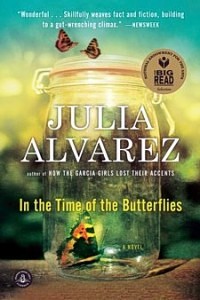 Set during the last days of the Trujillo dictatorship in the Dominican Republic, three young sisters, members of a conservative, pious Catholic family, who had become committed to the revolutionary overthrow of the regime, were ambushed and assassinated as they drove back from visiting their jailed husbands.
Set during the last days of the Trujillo dictatorship in the Dominican Republic, three young sisters, members of a conservative, pious Catholic family, who had become committed to the revolutionary overthrow of the regime, were ambushed and assassinated as they drove back from visiting their jailed husbands.
Thus martyred, the Mirabal sisters have become mythical figures in their country, where they are known as Las Mariposas (the butterflies), from their underground code names. Alvarez, a Dominican-American, has fictionalized their story in a narrative that starts slowly but builds to a gripping intensity. Each of the girls–Patria, Minerva and Maria Terese (Mate) Mirabal–speaks in her own voice, beginning from their childhood in the 1940s; their surviving sister, Dede, frames the narrative with her own tale of suffering and dedication to their memory.
Alvarez captures the terrorized atmosphere of a police state, in which people live under the sword of terrible fear and atrocities cannot be acknowledged. As the sisters’ energetic fervor turns to anguish, Alvarez conveys their courage and their desperation, and the full impact of their tragedy. (From Publishers Weekly)
4. The Last Voyage of Columbus by Martin Dugard
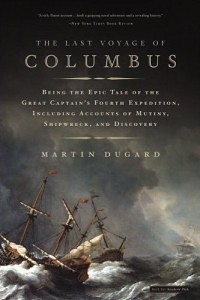 Complete name: The Last Voyage of Columbus: Being the Epic Tale of the Great Captain’s Fourth Expedition, Including Accounts of Swordfight, Mutiny, Shipwreck, Gold, War, Hurricane, and Discovery
Complete name: The Last Voyage of Columbus: Being the Epic Tale of the Great Captain’s Fourth Expedition, Including Accounts of Swordfight, Mutiny, Shipwreck, Gold, War, Hurricane, and Discovery
Here you can read the swashbuckling adventures of Columbus as told by Martin Dugard – the dude who writes all those Killing Books with Bill O’Reilly. You know, Killing Jesus, Killing Hitler, Killing Kennedy, Killing Yo Mamma, Killing Yo Yo Ma, etc.
What is with all this killing stuff anyway Bill? One guy who definitely did a lot of killing was Columbus. Killed all the Taino’s that were literately chilling out in Quisqueya before those Spanish-Italian-Portuguese mofo’s sailed across the ocean to satisfy their gold lust. Honestly, I have not even read this book, but I suspect the book somehow glorifies Columbus, not really my scene.
Don’t read about Columbus. Read about the real hero of the colonial times Bartolomé de las Casas, perhaps the first human rights activist ever. Bartolomé de Las Casas was the first and fiercest critic of Spanish colonialism in the New World. An early traveler to the Americas who sailed on one of Columbus’s voyages, Las Casas was so horrified by the wholesale massacre he witnessed that he dedicated his life to protecting the indigenous community.
He wrote A Short Account of the Destruction of the Indies in 1542, a shocking catalog of mass slaughter, torture, and slavery, which showed that the evangelizing vision of Columbus had descended into genocide. The book was dedicated to Philip II to alert the Castillian Crown to these atrocities and demand that the indigenous people be entitled to the fundamental rights of humankind. Power to the people!
5. Caribbean: A Novel James by A. Michener
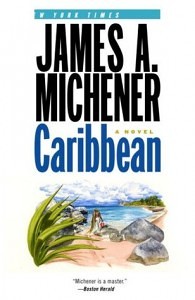 Michener. ‘nuf said.
Michener. ‘nuf said.
6. The Dominican Republic: A National History by Frank Moya Pons
Not exactly light reading but the authoritative academic history of the Dominican Republic from pre-history to the modern democratic era.
7. Why the Cocks Fight: Dominicans, Haitians, and the Struggle for Hispaniola by Michele Wucker
I have not read this one yet, but I hear it is quite good with crucial insights into Dominican-Haitian relations.
8, 9 and 10 Honorable mentions for books on Haiti.
While my heart naturally holds a soft spot for the Dominican Republic, here are a few of my favorite reads on Haiti.
Farewell, Fred Voodoo: A Letter from Haiti by Amy Wilentz. Anything the highly-acclaimed American journalist covering Haiti writes is worth checking out, including her blog. Her latest book as of this post is Farewell, Fred Voodoo: a letter from Haiti that chronicles the post-earthquake Haiti and the many Non-Governmental Organizations (NGOs) and other actors trying to sort out the chronic misery that is so much of Haitian life. While she paints a pretty bleak picture of the futility of so much of the Haitian rescue and rebuilding effort, her conversations with celebrities like Paul Farmer and Sean Penn are quite entertaining and elucidating. Mr. Penn spent months living in a tent getting down and dirty in the relief effort and is now Ambassador at large for Haiti. Kudos to you Sean.
The Harvard-educated Dr. Paul Farmer is another hero in Haiti, and his work is well chronicled in the moving book Mountains Beyond Mountains by Tracy Kidder
A bit on the fringe is the wicked indictment of the whole “Republic of NGOs” as Haiti is known in certain circles as portrayed in the fast read Travesty in Haiti: A true account of Christian missions, orphanages, fraud, food aid and drug trafficking by Timothy T. Schwartz. What can I say, when you learn about the community devoted to helping Haitians you will laugh, you will cry.
These books will now doubt wet your appetite for traveling to the Dominican Republic. When you decide to come to the DR, make sure you visit Cabarete and come by Cabarete Language Institute for a free Spanish class. Mention code BOOKDR to get your free class.


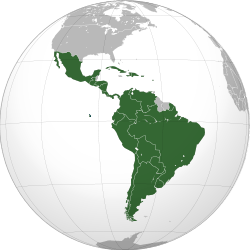

 Winner of the Pulitzer Prize and the National Book Critics Circle, the story of Oscar Wao – a sweet and friendly Dominican-American nerd, is mostly loved by all. But let’s keep it real; this book is out there. With references ranging from the Dominican concept of Fuku (a curse) to Dr. Who, there are few people on this planet who will get every inside joke, pun and literary trick in this book. (I suppose these are the books that win the fiction awards, right?)
Winner of the Pulitzer Prize and the National Book Critics Circle, the story of Oscar Wao – a sweet and friendly Dominican-American nerd, is mostly loved by all. But let’s keep it real; this book is out there. With references ranging from the Dominican concept of Fuku (a curse) to Dr. Who, there are few people on this planet who will get every inside joke, pun and literary trick in this book. (I suppose these are the books that win the fiction awards, right?) If you are looking for a colorful yet dark read about Rafael Trujillo – the brutal yet iconic dictator that ruled the Dominican Republic from 1930 until his assassination in May 1961, read Vargas’s account of El Jefe’s life and murder.
If you are looking for a colorful yet dark read about Rafael Trujillo – the brutal yet iconic dictator that ruled the Dominican Republic from 1930 until his assassination in May 1961, read Vargas’s account of El Jefe’s life and murder. Set during the last days of the Trujillo dictatorship in the Dominican Republic, three young sisters, members of a conservative, pious Catholic family, who had become committed to the revolutionary overthrow of the regime, were ambushed and assassinated as they drove back from visiting their jailed husbands.
Set during the last days of the Trujillo dictatorship in the Dominican Republic, three young sisters, members of a conservative, pious Catholic family, who had become committed to the revolutionary overthrow of the regime, were ambushed and assassinated as they drove back from visiting their jailed husbands. Complete name: The Last Voyage of Columbus: Being the Epic Tale of the Great Captain’s Fourth Expedition, Including Accounts of Swordfight, Mutiny, Shipwreck, Gold, War, Hurricane, and Discovery
Complete name: The Last Voyage of Columbus: Being the Epic Tale of the Great Captain’s Fourth Expedition, Including Accounts of Swordfight, Mutiny, Shipwreck, Gold, War, Hurricane, and Discovery Michener. ‘nuf said.
Michener. ‘nuf said.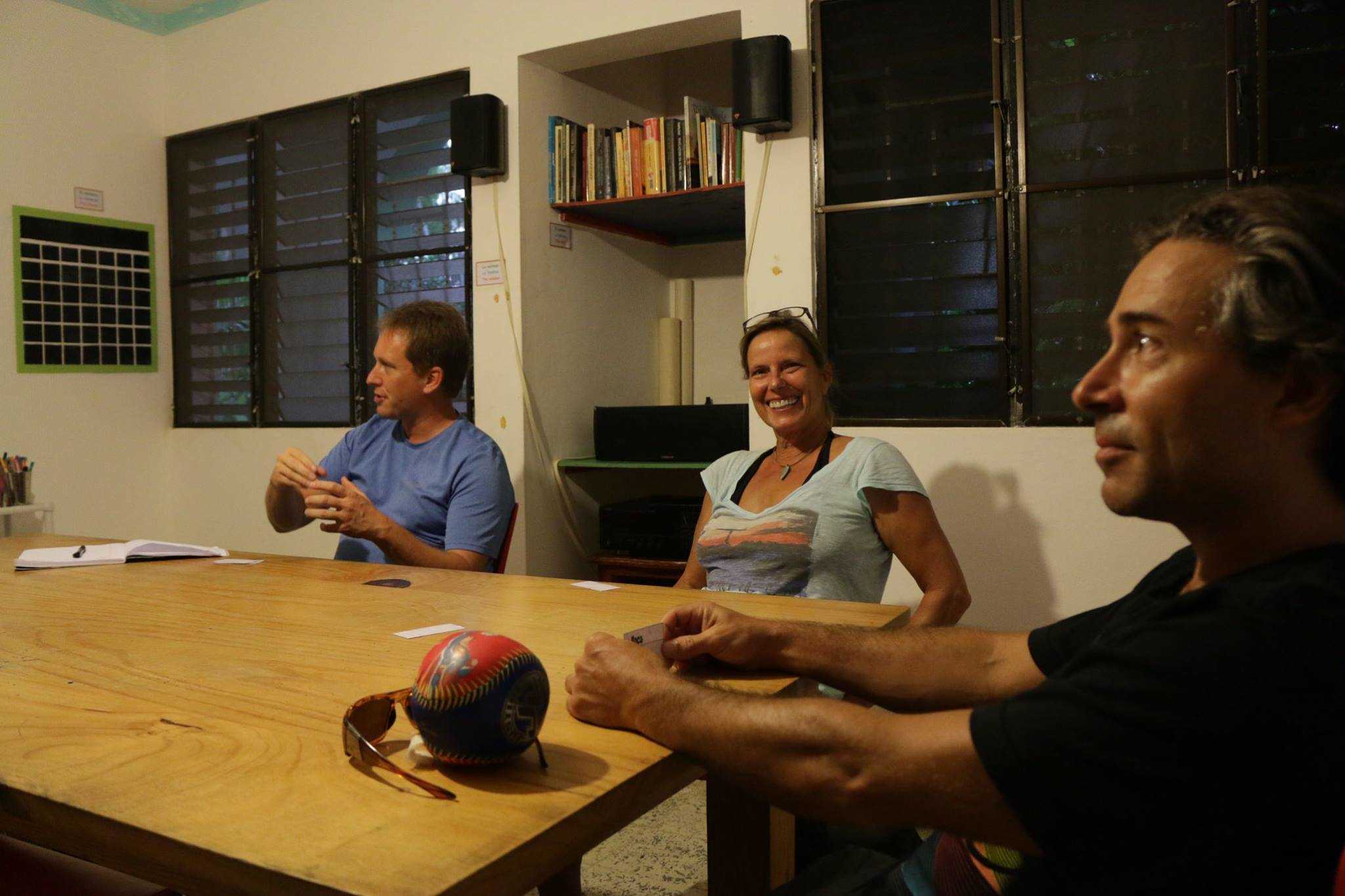
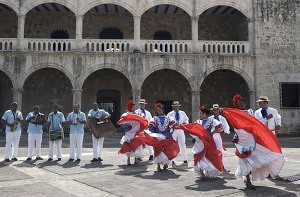 The Dominican Republic, or as it sometimes called locally: Quisqueya – which means “mother of all lands” in the extinct language of the Tainos, is the place where the Spanish first settled in the New World. It was during this settlement that the Spaniards took Taino wives and forced Africans to work the lands.
The Dominican Republic, or as it sometimes called locally: Quisqueya – which means “mother of all lands” in the extinct language of the Tainos, is the place where the Spanish first settled in the New World. It was during this settlement that the Spaniards took Taino wives and forced Africans to work the lands.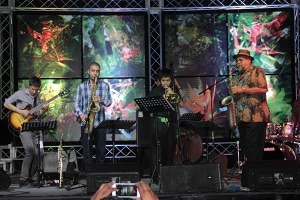 Witness of one of the major celebrations in any Spanish speaking country: the sparkling and exuberant Dominican Carnivals which start sometime in January and end with the major Carnival party the week before Lent.
Witness of one of the major celebrations in any Spanish speaking country: the sparkling and exuberant Dominican Carnivals which start sometime in January and end with the major Carnival party the week before Lent.
